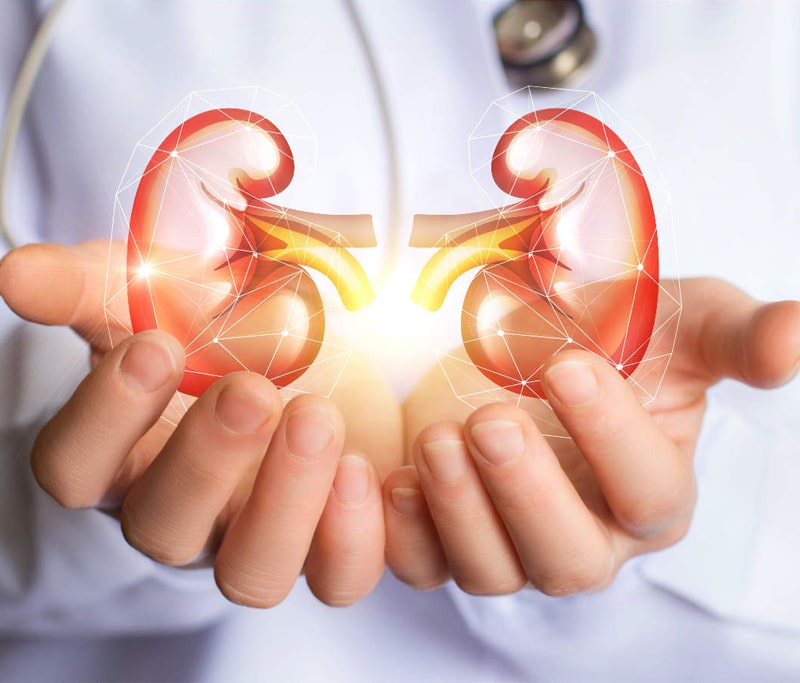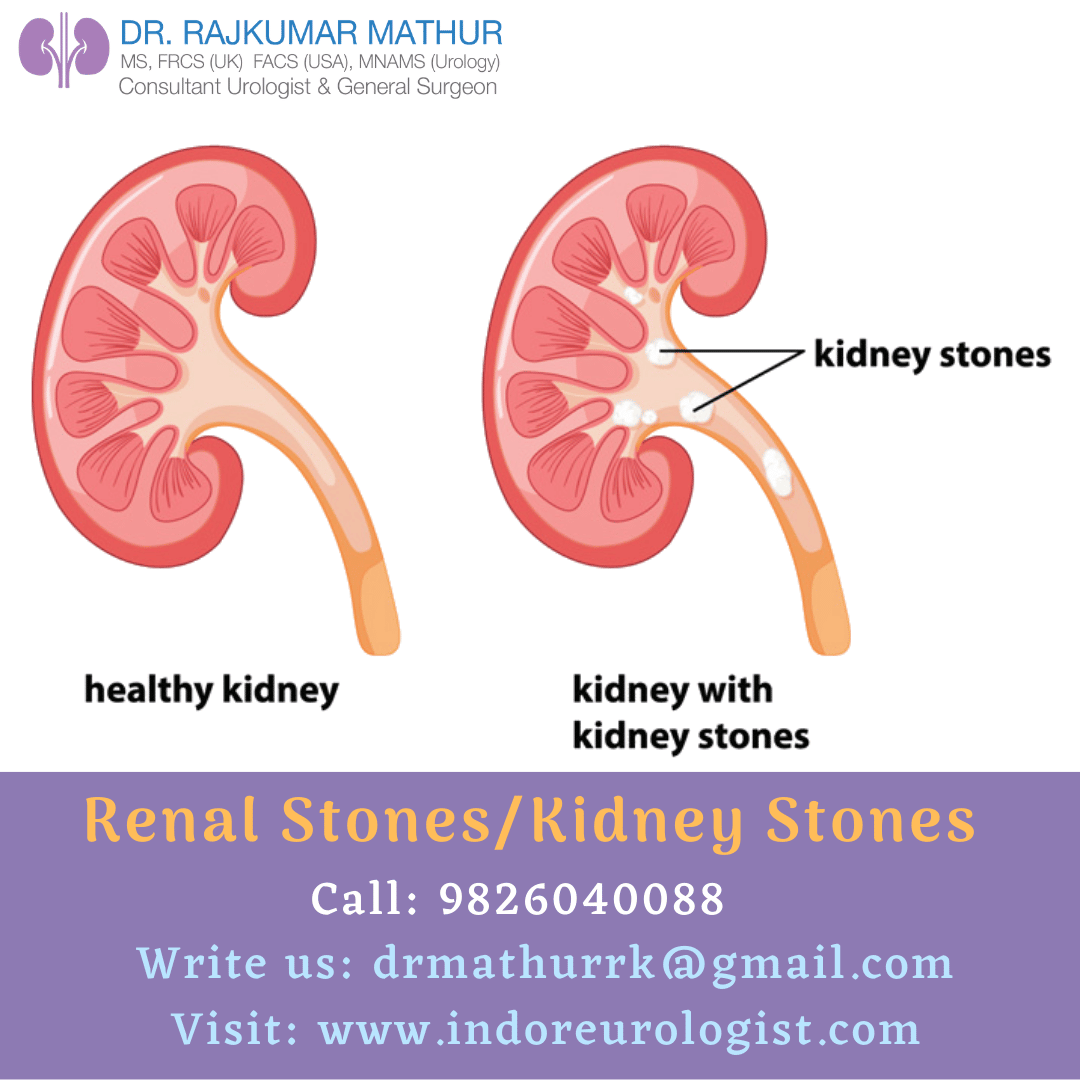What Tests Does A Nephrologist Perform Or Order
A nephrologist can order or perform a wide variety of diagnostic and screening tests, including:
-
Biopsy to find the source of any abnormalities found in blood and urine testing, as well as to gauge the extent of damage to the kidneys
-
Blood and urine tests to reveal how well the kidneys are filtering waste and fluids, and to see whether an infection is present
-
Imaging procedures, such as computed tomography and ultrasound, to check for blockages and structural abnormalities in the kidneys
Why People Need Nephrologist
Our kidneys are real all-rounders! They filter the entire amount of blood up to 300 times a day.
In total, up to 1,800 liters pass through the kidneys every day. This corresponds to 1.5 liters of urine daily.
If kidney tissue dies, regeneration is not possible. Kidney damage also affects other vital organs such as the heart, lungs, and brain.
A broad education and close cooperation with geriatricians, cardiologists, diabetologists, and rheumatologists, therefore distinguish nephrologists work.
Prevention, early detection, modern diagnostics, and adapted therapies are of great importance, especially for the kidneys. A trusted doctor-patient relationship is crucial for successful treatment.
Nephrologists need to get a comprehensive picture of the living situation of their patients. Its about finding the right treatment path together. This path begins in the nephrological consultation hour.
Often a lot has already been done for the kidneys when patients change their lifestyle and eating habits. If that is not enough, the use of medication is suggested.
Risk Factors For Kidney Disease
Since kidney disease can become serious before symptoms are present, it’s important to have a high index of suspicion and be aware of conditions which predispose you to kidney disease. People who are at greater risk of developing renal failure include those with:
- Long-standing high blood pressure
- Heart diseases such as coronary artery disease, or congestive heart failure
- Other vascular diseases such as cerebrovascular disease and peripheral vascular disease
- A family history of kidney disease
- Prolonged use of non-steroidal anti-inflammatory drugs such as Advil and Celebrex
Read Also: Why Does My Kidney Stone Only Hurt At Night
What Does A Nephrologist Do
Sometimes called renal medicine, nephrology is a specialty within the internal medicine field related to kidney care. It is often connected with hypertension or high blood pressure.
Nephrologists are medical professionals who diagnose, treat, and manage acute and chronic kidney problems and diseases. They also treat associated issues like high blood pressure, fluid retention, and electrolyte and mineral imbalances. In addition, these specialists are in charge of kidney dialysis treatment â both hemodialysis and peritoneal dialysis â and kidney transplants and their follow-up care.
Nephrologists are experts in renal health, and they work to identify issues with your kidneys to help you maintain good health. Your kidneys are important because they filter your blood to remove waste and toxins, and they monitor and balance the water, acid-base, and mineral ratios in the body.
Without proper filtering of the blood and balanced amounts of fluids and nutrients, your body can become an unhealthy environment. Having low-kidney function can put you at risk for chronic kidney disease, kidney failure, or end-stage renal disease, where you require dialysis regularly.
Seeing a nephrologist for your care puts you in the hands of experts who can recommend the best treatment plan. They stay up-to-date on medical advancements for your kidney condition to ensure that you have the most accurate and comprehensive care.
Nephrologist Training And Certification

A doctor may practice nephrology without becoming board certified in the specialty. However, education, training, experience and certification are key elements in establishing a doctors level of competence. Board certification verifies that a doctor has completed residency training in internal medicine and specialized training in nephrology, and has passed competency examinations.
A board-certified nephrologist has earned certification in nephrology by the American Board of Internal Medicine or the American Osteopathic Board of Internal Medicine.
A board-certified nephrologist has:
You May Like: What Will Dissolve Calcium Kidney Stones
Know The Proper Steps To Take For The Quickest Relief From Urinary Tract Infection
The lower urinary tract can provide access for infectious bacteria to enter the body, sometimes resulting in urinary tract infections. A urinary tract infection may cause one or more symptoms, such as a persistent sense of need to urinate, a burning sensation during urination, frequently passing only small amounts of urine, or urine that appears cloudy, bright red, pink, or brownish.
If you experience any of the above symptoms, see your doctor to find out which of the following methods of diagnosis and urinary tract infection treatment is appropriate for your needs.
Posted on by Cleveland Urologyin Kidney Health
Ask anyone who has ever passed a kidney stone if they would like to do it again. Chances are, your answer will be an immediate no!
It can be one of the most painful things, maybe next to childbirth, we can endure. They will tell you to run to a urologist if you have certain symptoms, and they will tell you once you have a kidney stone, you are likely to have more. Then they will explain the importance of and when to see a urologist for kidney stone treatment.
Get To Know The Signs Of Kidney Failure
Sohow do you turn up the volume on this silent killer? Dr. Calle says to payattention to these five signs of kidney failure:
But heres the problem : These symptoms seem to appear with no rhyme or reason. You could have all the symptoms at the same time or intermittently, or you may have one but not the others, Dr. Calle explains. It can feel like playing symptom Russian roulette.
Toplay it safe, see your doctor even if just one of these symptoms makes anappearance.
You May Like: What Is Chronic Kidney Disease Stage 4
Specialty Areas Of Interest
Q: Where can I find Nephrologist clinics?
A: Use HealthEngine to find and book your next Nephrologist appointment. Click on the following locations to find a Nephrologist clinic in your state or territory.
This article is for informational purposes only and should not be taken as medical advice. If in doubt, HealthEngine recommends consulting with a registered health practitioner.
All content and media on the HealthEngine Blog is created and published online for informational purposes only. It is not intended to be a substitute for professional medical advice and should not be relied on as health or personal advice.Always seek the guidance of your doctor or other qualified health professional with any questions you may have regarding your health or a medical condition. Never disregard the advice of a medical professional, or delay in seeking it because of something you have read on this Website.If you think you may have a medical emergency, call your doctor, go to the nearest hospital emergency department, or call the emergency services immediately.
How Do I Book The Best Nephrologist
To book the best nephrologists in Lagos, kindly view our list and select based on proximity. Choosing a nephrologist near you ensures you are punctual for your first appointment and follow-up. You should also consider factors like the insurance they accept, ratings, recommendations, and the number of people helped.
Recommended Reading: How To Ease Kidney Stone Pain
Is Drinking A Lot Of Water Good For Your Kidneys
Water helps the kidneys remove wastes from your blood in the form of urine. Water also helps keep your blood vessels open so that blood can travel freely to your kidneys, and deliver essential nutrients to them. But if you become dehydrated, then it is more difficult for this delivery system to work.
Four Great Tips For Your First Visit
To get you started, consider these tips:
- Before your first appointment at DNA, please download and fill out our downloadable new patient forms and bring them with you when you come in. These forms can be found at https://www.dneph.com/resources/patient-forms/.
- Plan to arrive at least 30 minutes early to your first appointment.
- Some helpful items to bring with you include a list of symptoms and how long you have had them, a list of all of your doctors with their contact information, a list of all medications you are taking, insurance information, a drivers license or another form of photo ID, your medical history, and any other medical records including lab tests and imaging results.
- Make a list of questions and concerns you have for your nephrologist.
Also Check: What Is A Simple Cyst In Kidney
When Kidneys Arent Doing Their Jobs
Renal failure, also called kidney failure or kidney disease, happens when the kidneys are not working efficiently or effectively. An estimated 37 million U.S. adults are living with chronic kidney disease, according to the U.S. Centers for Disease Control and Prevention.
Even more shocking? Nine in ten adults who have it dont even know it.
How could that be? People dont usually have noticeable signs of kidney failure until it is very advanced, says Dr. Calle.
This sneak attack is why kidney failure is known as a silent killer.
Reducing Kidney Stone Risk

Drinking enough fluid will help keep your urine less concentrated with waste products. Darker urine is more concentrated, so your urine should appear very light yellow to clear if you are well hydrated. Most of the fluid you drink should be water. Most people should drink more than 12 glasses of water a day. Speak with a healthcare professional about the right amount of water thatâs best for you. Water is better than soda, sports drinks or coffee/tea. lf you exercise or if it is hot outside, you should drink more. Sugar and high-fructose corn syrup should be limited to small quantities.
Eat more fruits and vegetables, which make the urine less acid. When the urine is less acid, then stones may be less able to form. Animal protein produces urine that has more acid, which can then increase your risk for kidney stones.
You can reduce excess salt in your diet. What foods are high in salt? Everyone thinks of salty potato chips and French fries. Those should be rarely eaten. There are other products that are salty: sandwich meats, canned soups, packaged meals, and even sports drinks.
Some herbal substances are promoted as helping prevent stones. You should know that there is insufficient published medical evidence to support the use of any herb or supplement in preventing stones.
- What food may cause a kidney stone?
- Should l take vitamin and mineral supplements?
- What beverages are good choices for me?
You May Like: Can Mio Cause Kidney Stones
Also Check: How Can Your Kidneys Get Damaged
How Will I Know If I Have A Kidney Stone
To find out the size and type of kidney stone you have, your doctor may do tests, including:
- Blood tests to show if there is too much calcium or uric acid in your blood
- Urine tests to show the type of wastes that are in your urine. For this test, your doctor may ask you to collect your urine over two days.
- Imaging tests, such as an ultrasound, CT scan or X-ray, to show kidney stones in your urinary tract
If you get kidney stones often, your doctor may ask you to urinate through a strainer to catch stones that you pass. Your doctor will then find out what they are made of to decide what is causing your kidney stones and how to prevent them.
How Do Doctors Treat Kidney Stones
The treatment for a kidney stone depends on:
- The size of the stone
- The type of stone
- If the stone is causing you pain
- If the stone is blocking your urinary tract
If your kidney stone is small, your doctor may have you take pain medicine and drink fluids to help push the stone through your urinary tract and out through your urine .
If your kidney stone is large or if it is blocking your urinary tract, a different treatment may be needed. Treatment options include:
Also Check: Where Do You Feel Kidney Stones
Physical Medicine & Rehabilitation Physicians
Also known as physiatrists, these doctors have completed medical school as well as several years of additional training in the nonsurgical treatment of problems with muscles, joints and nerves. According to Leigh Hanke, MD, a Yale Medicine PM& R physician, these specialists take the whole person into account when diagnosing and treating a musculoskeletal problem. Conditions they treat include arthritis, back pain, neck pain, sports injuries, sciatica and carpal tunnel syndrome. A patient may see a PM& R physician as a first step in care or after consulting other specialists.
Why Do Doctors Examine The Contents Of The Stone
There are four types of stones. Studying the stone can help understand why you have it and how to reduce the risk of further stones. The most common type of stone contains calcium. Calcium is a normal part of a healthy diet. The kidney usually removes extra calcium that the body doesnât need. Often people with stones keep too much calcium. This calcium combines with waste products like oxalate to form a stone. The most common combination is called calcium oxalate.
Less common types of stones are: Infection-related stones, containing magnesium and ammonia called struvite stones and stones formed from monosodium urate crystals, called uric acid stones, which might be related to obesity and dietary factors. The rarest type of stone is a cvstine stone that tends to run in families.
You May Like: Constipation Kidney Stones
Also Check: Does Cranberry Juice Help Prevent Kidney Stones
Kidney Stone Testing And Treatment
Another way a urologist can help with kidney stones is through testing and treatment. If your symptoms suggest you may have kidney stones, your doctor will examine you and call for diagnostic testing. Some of the primary tests used at Alliance Urology include urine testing, blood testing, stone analysis, or other imaging tests such as X-rays, CT scans, ultrasounds, or intravenous urography. Treatment will then depend on the size of the kidney stone. Drinking significant amounts of water can flush out the urinary system and pass any small stones, or your doctor may prescribe an alpha-blocker to help the stone pass. As we previously mentioned, a urologist can provide the best treatment for larger kidney stones. Procedures for more severe kidney stone cases include breaking up the stone with sound wave technology or surgical removal of the stones. No matter how severe the case is, the providers at Alliance Urology are here to help.
Conditions Treated By Kidney Doctors
Kidney doctors care for people with a number of different types of kidney disease including:
- Acute kidney injury: Acute kidney disease refers to the rapid onset of kidney disease often related to conditions such as shock , dehydration, kidney problems related to surgery, or inadequate drainage from the urinary tract .
- Chronic renal failure: Chronic kidney disease can be caused by a number of different conditions
There is a wide range of medical problems that can affect the kidneys in different ways. Some of the more common conditions which can cause kidney failure include:
- Diabetes : Diabetes is the leading cause of kidney failure in the United States
- Kidney disease related to high blood pressure and heart disease
- Kidney stones which cause obstruction
- Congenital kidney problems such as horseshoe kidney
- Glomerulonephritis: Glomerulonephritis is an inflammation of the kidneys which can be caused by a number of different processes, including the bacteria which causes strep throat.
- Kidney disease related to lupus
- Polycystic kidney disease: Cystic kidney disease is hereditary, though the severity of the disease, as well as age of onset, can vary
- Autoimmune diseases such as IgA nephropathy
- Kidney failure secondary to liver disease
Chronic kidney disease is described by five stages based on the severity of the disease. Grade 1 kidney failure refers to a mild disease, whereas grade 5 renal failure usually indicates that dialysis or a kidney transplant will be needed.
Read Also: What Is Chronic Kidney Disease
What Should I Know About Stage 3 Chronic Kidney Disease
A person with stage 3 Chronic Kidney Disease has moderate kidney damage. This stage is broken up into two: a decrease in glomerular filtration rate for Stage 3A is 45-59 mL/min and a decrease in GFR for Stage 3B is 30-44 mL/min. As kidney function declines waste products can build up in the blood causing a condition known as uremia. In stage 3 a person is more likely to develop complications of kidney disease such as high blood pressure, anemia and/or early bone disease.
What Conditions And Diseases Does A Nephrologist Treat

A nephrologist treats kidney-related conditions and diseases including:
-
Diabetes, a chronic disease that affects your bodys ability to use sugar for energy
-
Fluid and electrolyte imbalance, which can be due to kidney disease, excessive diarrhea and vomiting, or certain medications
-
Gout, a metabolic imbalance leading to excess uric acid in the circulation and the accumulation of painful urate crystals within the joints.
-
High blood pressure , which can damage your kidneys. High blood pressure can also be caused by renal artery stenosis, a narrowing of the arteries that supply blood to your kidneys.
-
Kidney cancer, which is often treated by removing all or part of the affected kidney
-
Kidney disease, which can be due to kidney infection, kidney obstruction, and renal artery stenosis
-
Kidney failure, which occurs when your kidneys are unable to remove waste products from your body
-
Kidney stones, which are often due to chronic dehydration
You May Like: How Do You Know You Have Kidney Problems